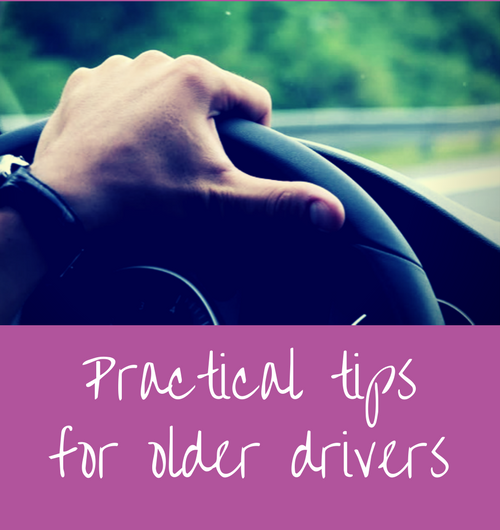Practical tips for older drivers

According to the University of Adelaide, older drivers are over-represented in at-fault crashes. An analysis of the reasons for these crashes shows there is typically a deficit experienced by the elderly driver in performance at perceptual, motor and higher cognitive levels, with particular emphasis on speed and information processing deficits. Sadly, there is also a higher injury risk as a result of greater frailty amongst the elderly. Prevention therefore should be a key focus for families.
At Careseekers, we have looked into the recommendations offered by the University, along with other market trend data, and suggest families consider the following practical tips to help protect their elderly family members on the road:
Practice tips:
- Choose safer vehicles - if possible, choose a car over other types of vehicles available, and one that is newer with advanced safety features, such as park-assist. Also look for 5 star ANCAP rating or UCSR where possible.
- Reduce speed - encourage your family member to reduce speed in general, but in particular in high pedestrian areas.
- Self-regulate - suggest your family member doesn’t drive in difficult situations, such as at night if vision is poorly.
- Develop a transition plan to being a non-driver - this is critical so that your family member doesn’t experience significant ‘shock’ with the sudden loss of mobility. Please do bear in mind many elderly don’t like to use public transport, which can lead to social isolation, so the sooner you can develop a plan the better.
- Enlist support - seek the support from other family members with transport as mobility diminishes.
- Taxi program - there are some multipurpose taxi programs which subside taxi fares for pensioners.
- Contact the local council - there are often local transport services available to take family members on outings, or drop them to specific locations. This will also help to prevent social isolation.
- Professional driver - if you are in a position to do so, a professional driver can be a great option as your parent can develop trust with this individual and call them directly if ever needed. This may be an option under a home care package if the elderly person has one.
It is worth making mention of mobility scooters, as the use of these vehicles is on the rise. If your family member uses one, please ensure it is registered and please only use if it has been recommended by a medical practitioner.
To become a care or support worker, please visit www.careseekers.com.au/carer
To find aged care services, please visit https://www.careseekers.com.au/services/aged-care-workers
To find disability support services, please visit https://www.careseekers.com.au/services/disability-support-workers
